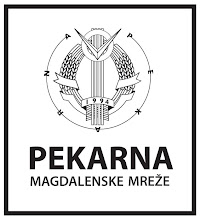The two things that I’m most interested in
are performative arts and social and political engagement. The latter was
already part of my life, both as a representation of my day to day actions, and
as a number of activities I used to take part in back in my city, Cluj. I don’t
think this facet of my personality and life will fade away any time soon. And
that realization that my organization is politically active was one of the
reasons I was very happy to join them.
However, the performing arts part was only
tangentially a part of my life. What I mean by that is that of course I was
following the theater scene, I was attending theater performances, but this
would rather correspond to a hobby level of engagement, and I wanted more than
that. Since I didn’t study acting or directing, and I had no idea if I would be
good at any of that, years ago I tried something that I knew I have some talent
in, and that is writing. I started to write theater reviews and sending them to
publications that I appreciated, who published them. I actually started with a
magazine that I loved, who had a contest for the young theater critics, which I
won.
This kept me going for a while. I even
enrolled in a master in journalism, Media Production, to make sure I’m
qualified to delve in the area of writing and performance, even if only
tangentially.
But I always had a need and desire for
more, I wanted to be a part of the festivals that I was attending and maybe
reviewing, and the shows that I was watching and writing about. It’s pretty
hard, even for those who have studied theater, to make it their job – it
doesn’t pay much, and it’s anyways very hard to catch a break and be hired by a
theater.
So, when I came to Maribor, knowing that my
organization has theater of the oppressed classes and that they are active in
the artistic field, I thought this might be a chance to give it a go in some
hands-on involvement.
The theater of the oppressed as such is not
a form of theater I’m particularly fond of. That is because it is mostly a form
of social work, a tool for social change rather than a form of art. And whilst I
think activism is crucial for political change, and I also believe in the
combination and synergy of art and political message, I think that the
esthetical form needs to be kept and carefully worked at. This is not of
particular interest in the theater of the oppressed. Its practitioners are
mostly interested in portraying an oppressive situation and encouraging people
to actively participate in its development. Which is, again, great, empowering
and maybe even functional in its purpose. But it’s not art.
The workshops and my implication in some
projects together with the group So-so-so and the group ZIZ, both part of my
organization, have brought me quite a lot though.
I was always very uncomfortable with public
speaking (i.e. situations such as holding a presentation, not those such as
casually speaking to people, which I love). This was always one of my fears.
And I decided to subject myself to as much public speaking as I could. And from
being pretty scared of taking turns in saying some words about ourselves in an
I-don’t-know-what-workshop, to acting on stage is a pretty big leap! Actually sometimes,
when I have a look over the photos from our performance, I still can’t believe
that I’m doing that. And while I might not have I don’t know what skills or
talent, and while I’m still nervous for a while on stage, I’m pretty proud of myself both for having
the courage to do it, and for the results.
Another thing that I learned from
co-creating and acting in a performance is that it’s not really a
larger-than-live, science-fiction, other-worldly endeavor to make something
happen from scratch, to build a decent performance. It is actually something
attainable. Something that you can, step by step, put together, reshape, and
make it work. And I want to hold on to
this feeling, because I am going to start my own project, a workshop and a
final performance on body image and the media influence in our self-perception,
and I think this is a pretty big, and at the same time, scary endeavor.
One last realization that I’m going to
mention here is how important the people that you work with are. In an activity where you’re so exposed, it is
very important to trust and rely on your co-workers. It’s very important to
hear from them that you did great, to trust their opinions and feedback, to be
able to work with their feedback live, on stage, where you need to be in
character as much as you can, so you need the others to interact and be in the
moment with you. If you don’t have that, and you don’t respect the other’s
actions, choices and tastes, you cannot go on, as you no longer feel and
pleasure in it. At least I can’t. Fortunately, it only happened to me once to
decide to leave a workshop because I wasn’t working with people I was the
slightest bit on the same page with.

Ah, and one more thing: as I mentioned, I
always wanted to be part of a (good) festival, with more than attending or
writing about it. And now, we’re going to perform our forum play, ‘Act like a
girl!’ at Lent, and maybe even on the Theater of the Oppressed Non-festival! Not
bad at all! :)
Ioana

















